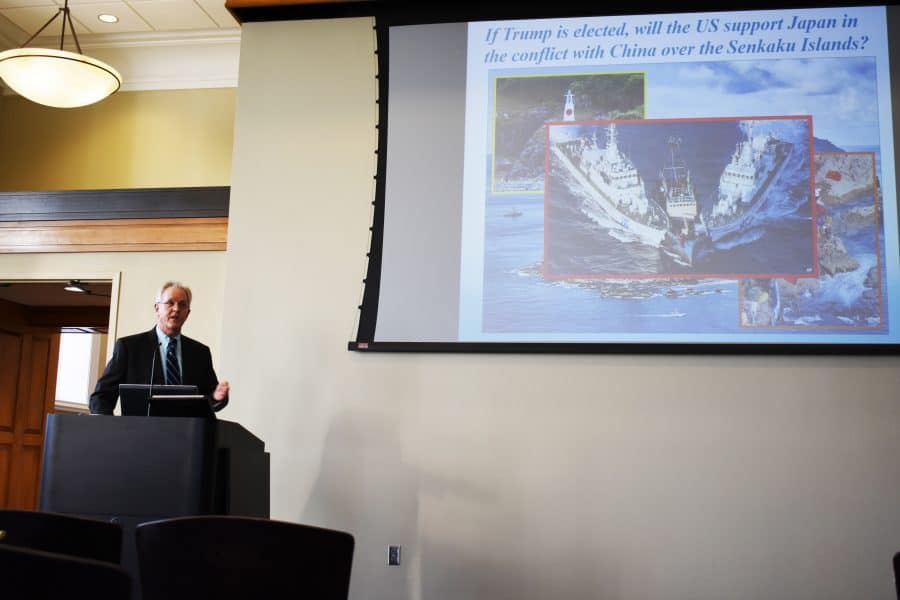Brian Woodall, a professor of political science specializing in Japanese studies from the Georgia Institute of Technology, addressed questions about economic, social and militaristic changes with U.S.-Japanese relations under the Trump administration at a public lecture Tuesday.
Many countries worried how President Donald Trump’s campaign promises would translate to policy with foreign nations for the United States upon his inauguration. Woodall said though Trump’s campaign promises worried Japan, relations between the United States and Japan have continued with little conflict.
“Trump’s relationship with [Prime Minister Shinzō Abe] is about as close of a relationship that he has with any other foreign leader. I can’t think of a foreign leader that he gets along with better,” Woodall said.
Giving a synopsis of Japanese political history to the audience, Woodall explained how Trump’s election has impacted the current political atmosphere in Japan. While many of his campaign promises were against Japanese interests, the president’s actions so far in office have primarily been pro-Japanese.
The only enacted campaign promise that does not favor Japan is the withdrawal of the United States from the Trans-Pacific Partnership. Despite this, Woodall said the re-affirmation of support and protection for Japan from Trump was extremely important to Japan.
Woodall said as military tension between Japan and its neighbors increase, the dominant Liberal Democratic Party in Japan and Abe hope to amend their constitution to allow Japan to maintain military forces, and since Trump has pushed for Japan to share the burden of military power in the region, Woodall said it is more likely for an amendment to be passed.
“It is more likely for Japan to amend their constitution, not just because of North Korea’s missile testing, but China is also getting more aggressive, like recently sending submarines toward the Senkaku Islands,” Woodall said.
Jon Hanley, a junior majoring in marketing and history at The University of Alabama, said he was extremely happy that he attended the event. The implications of the topics interested him, especially since the discussion after the lecture hosted a wide variety of topics like taxes.
“I was always curious of the possibility of tariffs being placed by Trump, but I never thought about how heavily it would impact the Japanese economy,” Hanley said.
The Japanese-American Society of Alabama hosted and organized the lecture and discussion. Details for more information on the society and updates on future events can be found on their website at www.jasaweb.org.







